How To Save Energy At Home UK
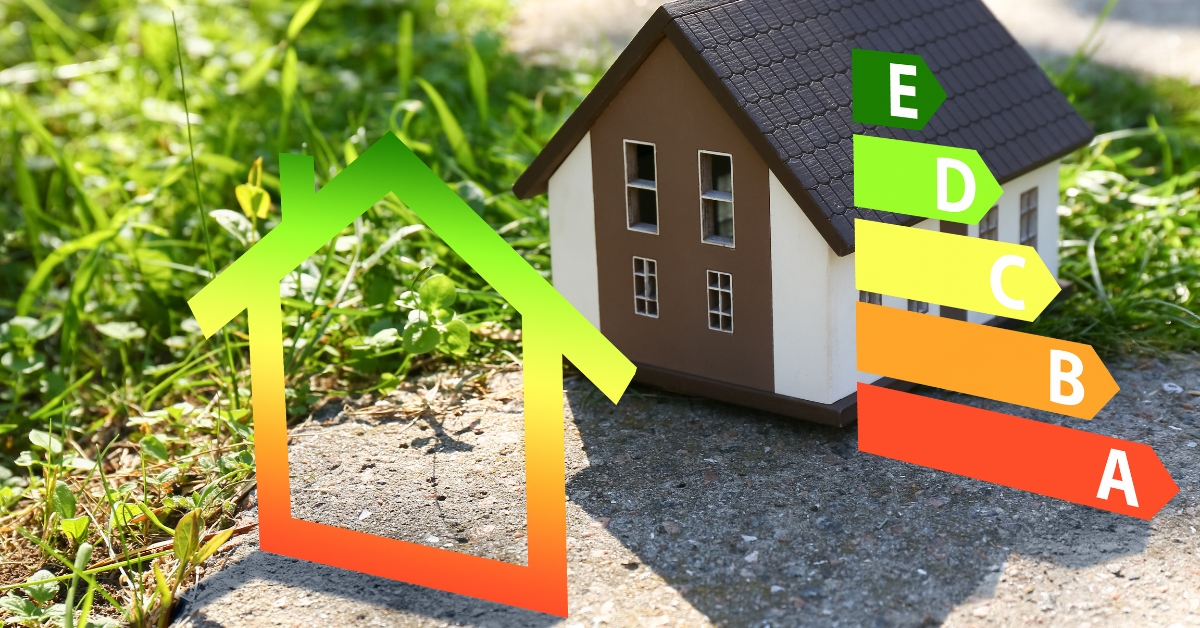
As winter approaches, many UK homeowners brace for rising energy bills. The colder months bring a significant increase in heating usage, and with energy prices continually climbing, it's more important than ever to find ways to conserve energy at home. Whether you’re concerned about cutting down on utility costs or reducing your carbon footprint, adopting energy-saving strategies can make a big difference. From adjusting daily habits to investing in energy-efficient appliances, there are many ways to save energy without sacrificing comfort.
In this guide, we’ll cover practical tips that can help you reduce your energy usage, lower your bills, and contribute to a greener planet. Whether you're a homeowner or renter, these steps will allow you to make meaningful changes that benefit both your wallet and the environment. For additional resources on energy conservation, visit trusted sites like the Energy Saving Trust and Which? for expert advice.
Why Should You Save Energy?
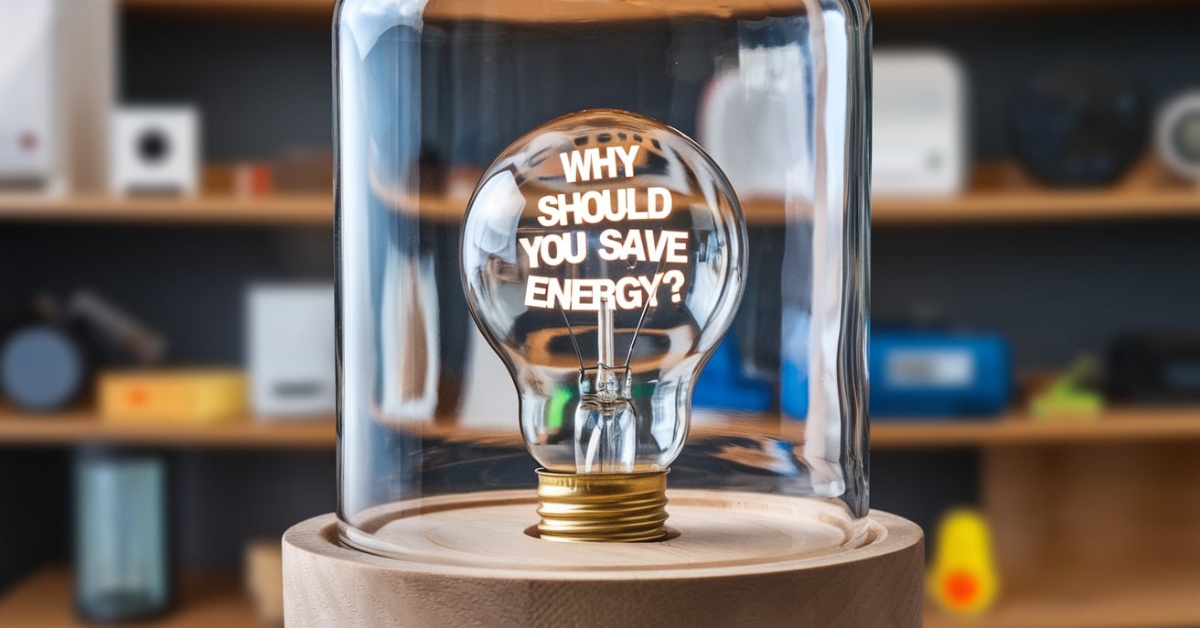
Before diving into energy-saving tips, it's crucial to understand why energy conservation matters. For one, UK energy costs are expected to continue rising in the coming years. Many households are already feeling the pinch of higher utility bills, particularly during winter when heating systems are in full swing. In regions like Scotland and Northern Ireland, where winters are particularly harsh, the need for constant heating can lead to sky-high energy bills.
However, saving energy isn't just about cutting costs—it's also about reducing your carbon footprint. The energy we consume largely comes from finite natural resources like coal, oil, and gas. By using less energy, you not only save money but also reduce your contribution to environmental degradation. Every little effort, from turning off unused lights to switching to energy-efficient appliances, can make a significant impact on both your wallet and the planet. Check out our blog on 10 Ways to Save Electricity and Heat Energy!
What Is Energy Conservation?

Energy conservation is crucial to saving energy. In the simplest terms, energy conservation is the process of using less energy in order to reduce environmental impact and lower costs on energy bills. There are multiple ways to start conserving energy.
You can conserve energy by using less gas, electricity, or any other type of energy that you get from paid utilities. Since the planet has a finite number of resources, active energy conservation is beneficial for both individuals and our larger energy systems.
Energy conservation starts at home, and once you perfect this process in your household, you can start putting these practices to use elsewhere.
How Much Can You Save By Cutting Back On Energy?

There are major potential savings you can earn by cutting back on energy use. For example, if you start switching off standby energy, you can potentially save up to £45, and by remembering to turn off lights, you can save £19 per year.
Even if these savings seem low, once you start using them frequently, your savings will add up. These are just a few ways you can accrue savings in the long run. There are several other ways to save energy at home and otherwise.
Credit: HOME CLEVR
How To Prepare For Energy Conservation?
Before you start making changes, it is important to get a better understanding of your energy bill. Once you understand all the charges on your bill, you will know how to make better energy saving choices. You can also amend any wrongful charges in your bill to cut back on the energy cost.
How To Save Energy At Home?
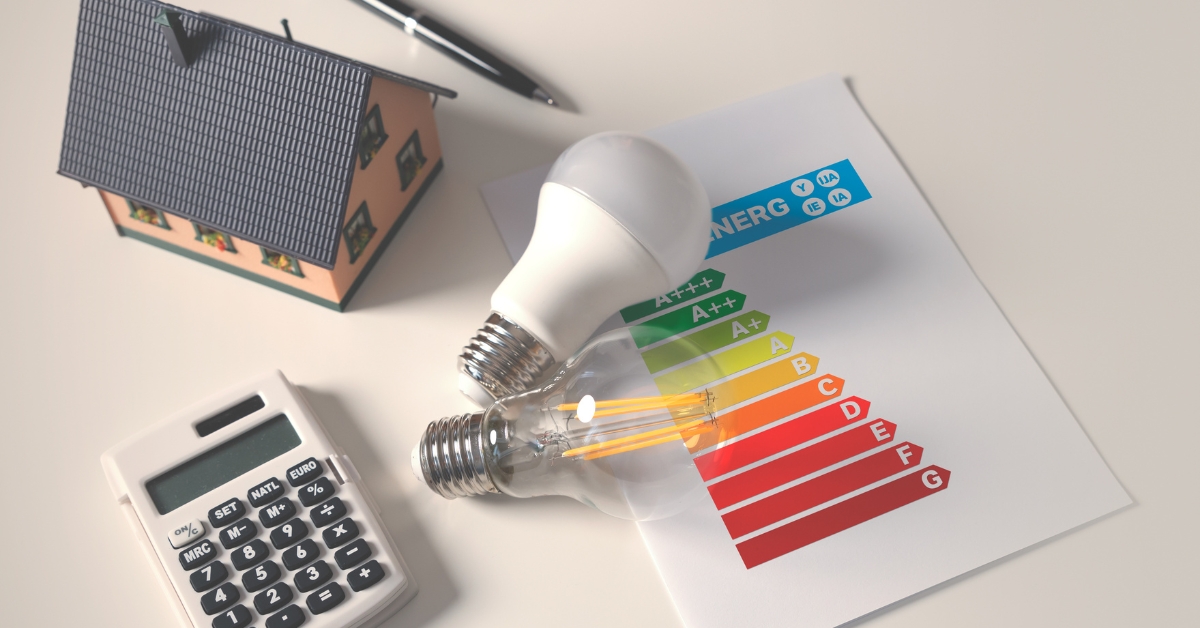
To start saving energy, you don’t need to make big changes at first. You can slowly start building these habits by making small steps. Once you make multiple small changes, you can start seeing major benefits in the future. Here are some ways to start saving energy at home in the UK.
1. Make Adjustments to Your Daily Lifestyle
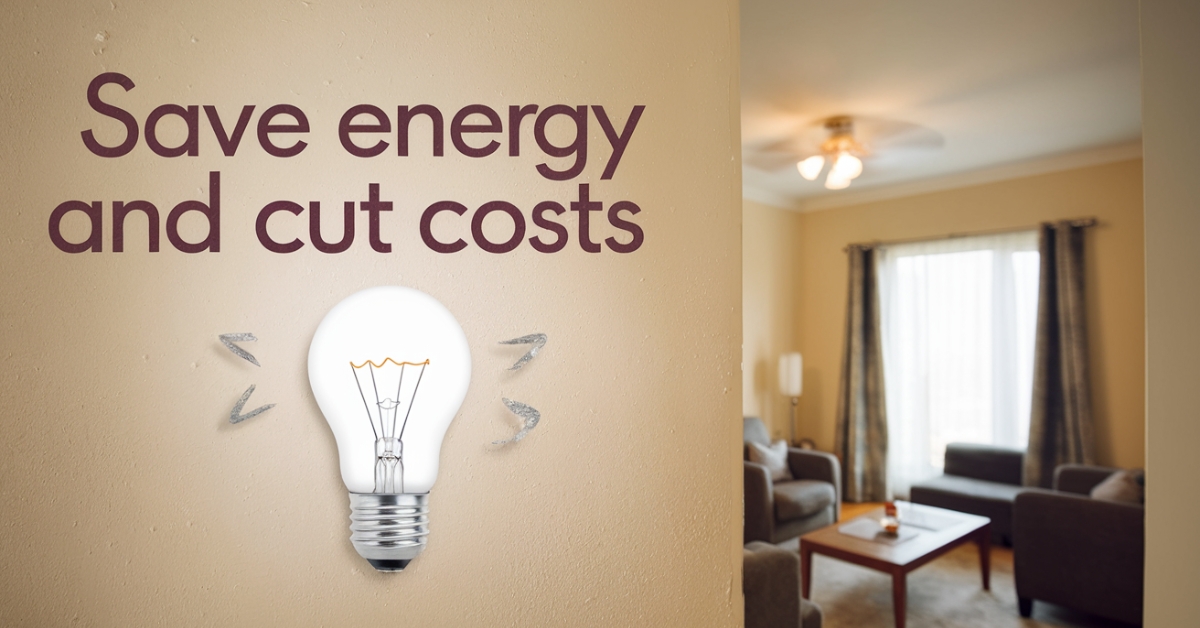
One of the easiest and most effective ways to save energy at home is by making small adjustments to your daily routine. You don’t necessarily need to invest in expensive technology or appliances to see noticeable savings. Here are some everyday habits that can significantly lower your energy consumption:
- Turn off appliances when not in use: It sounds simple, but many households waste energy by leaving devices on standby. By unplugging electronics or using a power strip that can turn off multiple devices at once, you can save around £45 a year just by eliminating standby energy.
- Use energy-intensive appliances less: Appliances like washing machines, dishwashers, and tumble dryers consume a lot of energy. Try using these devices only when you have full loads or, better yet, hang your clothes to dry and wash dishes by hand occasionally.
- Optimise heating and cooling: Heating and cooling account for nearly 50% of the average household's energy bills. Lowering your thermostat by just one degree during the winter months can reduce your heating costs by up to 10%. For more efficiency, invest in a smart thermostat, which allows you to control your heating remotely and set it to adjust automatically based on your schedule.
The UK Government’s Department for Energy Security and Net Zero recommends reducing unnecessary heating and cooling usage for maximum savings.
2. Conduct a Home Energy Audit
A home energy audit is an essential step in identifying where and how your home consumes energy. Whether you hire a professional auditor or conduct a basic DIY audit, the goal is to pinpoint inefficiencies and make informed decisions about energy-saving upgrades.
Professional Audits: A professional home energy audit provides a comprehensive assessment of your home’s energy use. These audits typically involve specialised equipment, such as blower doors or thermographic scanners, to detect air leaks and insulation issues. While professional audits can take several hours and may cost between £100-£500, the insights they provide are invaluable. Auditors will not only tell you where you’re wasting energy but also provide a detailed plan of action to improve your home’s efficiency. For instance, a thorough audit may reveal that you need better insulation or upgraded windows to retain heat more effectively.
DIY Audits: If you don’t want to hire a professional, you can perform a simple energy audit yourself. Start by reviewing your past energy bills to understand your consumption patterns. Then, inspect areas prone to air leaks, such as windows, doors, and attic spaces. Sealing these gaps can prevent heat from escaping, reducing your heating costs. You can also check your home’s insulation and lighting systems to ensure they’re energy-efficient. Local councils may also offer resources or subsidies for energy audits, so it's worth checking with your local authority.
For more detailed information on conducting a home energy audit, visit the Energy Saving Trust’s guide.
3. Switch to Energy-Efficient Lighting

Lighting can account for a significant portion of your electricity bill, but switching to energy-efficient lighting options can make a noticeable difference. LED (light-emitting diode) bulbs are the most energy-efficient choice, using 90% less energy than traditional incandescent bulbs. Not only do LEDs last longer, but they also emit brighter light while consuming minimal power.
Why LED Lighting?
LED bulbs last up to 25 times longer than incandescent bulbs and can reduce your lighting energy consumption by up to 75%. While they may be more expensive upfront, the long-term savings far outweigh the initial cost. According to research by the UK Energy Research Centre, replacing traditional bulbs with energy-saving LEDs can save the average household up to £50 annually.
Choosing the Right Bulbs: When switching to LED or compact fluorescent lamps (CFLs), look for the highest efficiency ratings. LED bulbs come in a variety of brightness levels, measured in lumens, so you can choose the appropriate brightness for each room. If you’re looking for high-quality LED lighting, check out Kosnic's LED range available at Meteor Electrical. Kosnic offers a broad selection of energy-efficient lighting solutions that are perfect for both residential and commercial applications.
4. Cut Down On Standby Energy
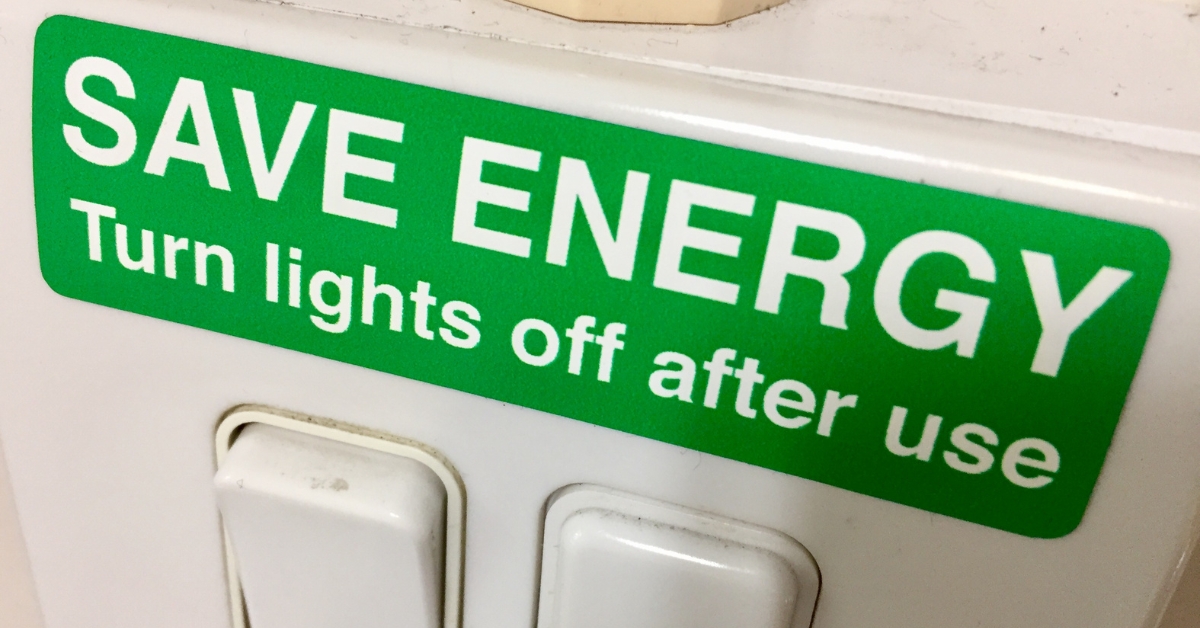
Ever wondered why your energy bill is so high even when you're not actively using many appliances? One culprit could be standby energy. Standby energy consumption occurs when devices continue to use electricity even though they aren’t in active use. Many common household appliances, such as televisions, computers, and smart speakers, don’t fully power down when switched off but instead enter a standby mode where they still draw power.
For example, keeping your smart speaker plugged in when it’s not being used or leaving your laptop in standby mode can add to your electricity costs over time. While essential appliances like refrigerators need to stay on, many other devices don’t.
One solution to minimise standby power consumption is using smart plugs or smart sockets. These devices allow you to turn off appliances completely when they aren’t in use, either manually through an app or on a set schedule. Some smart plugs even provide energy consumption data, so you can see which devices are the biggest energy hogs.
If you’re looking for reliable options, Meteor Electrical offers a variety of smart plugs, such as the Knightsbridge Smart Plug, which lets you control your devices remotely and provides energy-saving features like scheduling and voice control.
For more information, visit our blog on Smart Plugs and Smart Switches.
5. Get an Efficient Heater
Heating is one of the biggest contributors to high energy bills in the winter. To reduce energy consumption during the colder months, start by maximising natural heat. Open your curtains during the day to let sunlight naturally warm your home, and close them at night to keep the warmth inside. Ensuring your windows and doors are properly sealed is another way to prevent heat from escaping, reducing your reliance on the heater.
If your home still feels cold, it may be time to upgrade to a smart heater. Smart heaters are designed to heat rooms more efficiently while using less energy. These heaters allow you to schedule when they turn on and off, giving you more control over your energy usage. Plus, some models offer remote control via smartphone apps, making it easy to adjust the temperature when you're not at home.
Meteor Electrical offers a range of smart heaters that can help you stay warm and cosy without skyrocketing your energy bill. These heaters distribute heat evenly and give you better control over your heating system, making them an energy-efficient solution for winter.
Check out our blog on Smart Heating and how to save heat energy.
6. Draughtproof Windows and Doors
One of the simplest and most cost-effective ways to conserve energy at home is by draught-proofing your windows and doors. Draughts are essentially unwanted gaps in your home’s structure that allow cold air to seep in and warm air to escape, forcing your heating system to work harder. By blocking these gaps, you can retain more heat inside your home, making it more energy-efficient.
Draught-proofing can be done DIY-style or by hiring a professional. You can use foam strips or draught excluders around windows and doors to stop warm air from escaping. This not only keeps your home warmer but can save you up to £45 per year on your energy bills.
For those looking to further reduce heat loss, consider adding plastic film insulation to your windows, which creates a barrier that helps trap warm air inside.
Credit: Energy Saving Trust
7. Insulate Your Home
While draught-proofing is effective, insulating your home takes energy conservation to the next level. Insulation helps keep your home warm in winter and cool in summer, reducing the need for heating and air conditioning. Well-insulated homes can retain heat longer, meaning you don’t have to rely as much on your heating system.
Key areas to insulate include walls, lofts, basements, and floors. Each of these areas can let heat escape if not properly insulated. According to the Energy Saving Trust, loft insulation alone can save homeowners up to £580 a year on energy bills. Insulation is especially important in older homes, where walls may not be adequately equipped to retain heat.
The level of insulation required varies based on where you live. Homes in colder climates typically require higher levels of insulation compared to those in milder regions.
8. Consider Showers Over Baths
One often overlooked area of energy consumption is hot water. During winter, water heaters work overtime to heat large volumes of water, particularly when you’re running baths. Showers are a much more energy-efficient option, as they typically use less hot water than baths.
If you want to further conserve energy, consider investing in a more efficient water heater. Modern water heaters are designed to heat only the amount of water you need, minimising waste. Additionally, upgrading your showerhead to a more efficient model can help you control water usage better.
Meteor Electrical offers a variety of efficient water heaters that cater to different household needs. By making this switch, you can enjoy warm showers without worrying about excessive energy consumption.
9. Upgrade to Energy-Efficient Appliances
Many of the household appliances we rely on daily, such as washing machines, refrigerators, and ovens, are significant energy users. While you can take steps to minimise energy use with your current appliances, upgrading to energy-efficient models can yield even greater savings.
Look for appliances with high energy-efficiency ratings (A++ or higher). These models are designed to use less electricity while providing the same or better performance. For instance, an energy-efficient refrigerator can save you up to £60 annually on your energy bills.
Meteor Electrical offers a range of energy-efficient appliances that can help you lower your energy consumption while maintaining the convenience you’re used to.
10. Use Smart Technology for Better Control
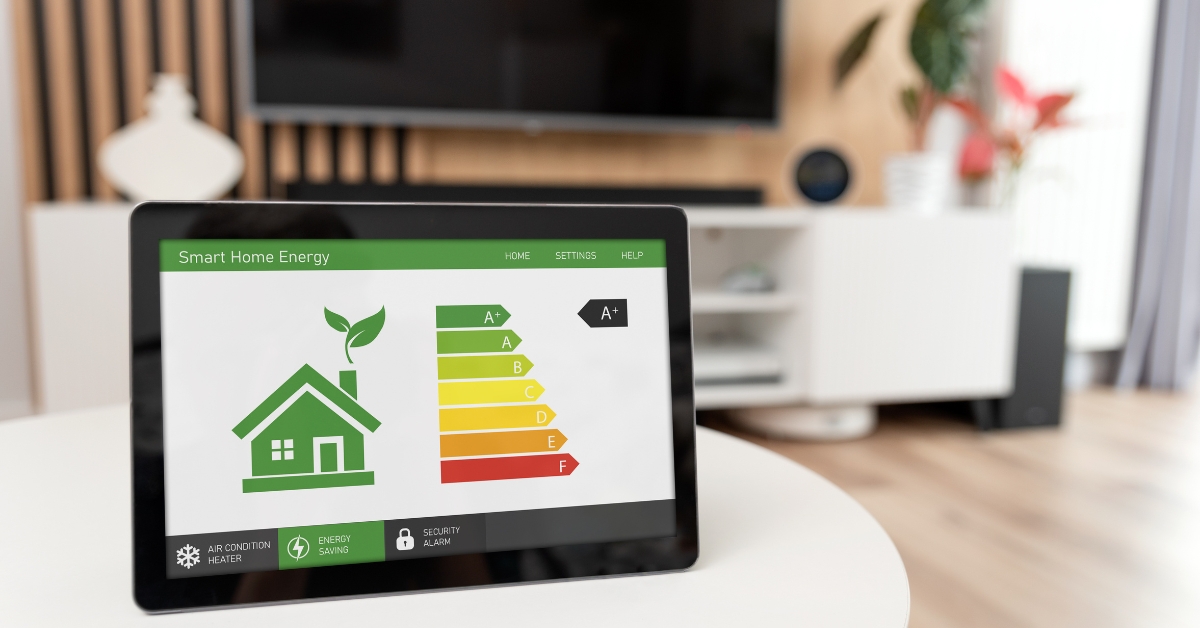
Smart technology isn’t just a luxury—it’s also a powerful tool for energy savings. From smart thermostats to smart lighting systems, there are many ways you can optimise your energy usage. Smart thermostats, for example, learn your daily habits and adjust the temperature accordingly, reducing unnecessary heating or cooling when you’re not home.
Smart lighting systems like LED bulbs also consume significantly less energy than traditional incandescent bulbs. Not only do they last longer, but they can be controlled remotely, allowing you to turn off lights even when you're not at home. According to the UK Energy Research Centre, switching to LED lighting can save you up to £50 annually on your electricity bill.
Explore Meteor Electrical’s wide range of smart plugs, switches, and lighting to take full control of your home’s energy usage.
| Smart Technology | Energy-Saving Feature | Potential Benefit |
|---|---|---|
| Smart Plugs | Remotely control devices | Reduce standby energy usage |
| Smart Heaters | Schedule heating times | Lower heating costs |
| Smart Thermostats | Adjust temperature remotely | Optimise heating and cooling |
| LED Lighting | Low energy consumption | Save up to £50 annually |
| Smart Appliances | Energy-efficient operations | Reduce overall energy consumption |
Conclusion
Saving energy at home doesn't have to be complicated or require significant sacrifices. By implementing these simple yet effective strategies—like cutting down on standby energy, upgrading to efficient heaters, draught-proofing your home, and embracing smart technology—you can make a substantial difference in your energy consumption. Not only will these changes help lower your utility bills, but they also contribute to a healthier environment by reducing your carbon footprint.
Remember, every small step counts. Whether it's unplugging devices that aren't in use, insulating your windows and doors, or opting for a quick shower over a bath, these adjustments can lead to significant savings over time. Energy conservation is a collective effort, and starting at home is the perfect way to contribute to a more sustainable future.
At Meteor Electrical, we're committed to helping you achieve an energy-efficient home without compromising on comfort or convenience. We offer a wide range of products—from smart plugs and heaters to energy-saving lighting solutions—that are designed to reduce energy consumption and enhance your living space.
Ready to start your energy-saving journey? Visit our website today to explore our selection of energy-efficient products and take the first step towards a greener, more cost-effective home!
Want to create a Smart Home? Check out our guide on How to Create a Smart Home!
FAQs
1. What is the easiest way to reduce energy consumption at home?
One of the simplest ways to reduce energy consumption is by turning off appliances and devices when they’re not in use. Unplug electronics or use smart plugs to eliminate standby power.
2. How can smart plugs help save energy?
Smart plugs allow you to fully power off devices remotely or on a schedule, preventing unnecessary energy use. They also provide insights into how much energy each device consumes, helping you identify energy hogs.
3. What are the benefits of using LED bulbs?
LED bulbs use up to 90% less energy than traditional incandescent bulbs and last much longer, making them a cost-effective and energy-efficient lighting solution.
4. How does insulating my home save energy?
Insulating your home helps retain heat during winter and keeps it cool during summer, reducing the need for heating and cooling systems. This can significantly lower your energy bills.
5. Are smart heaters worth the investment?
Yes, smart heaters efficiently distribute heat and allow for precise control via schedules and remote access, helping you save on heating costs without sacrificing comfort.

